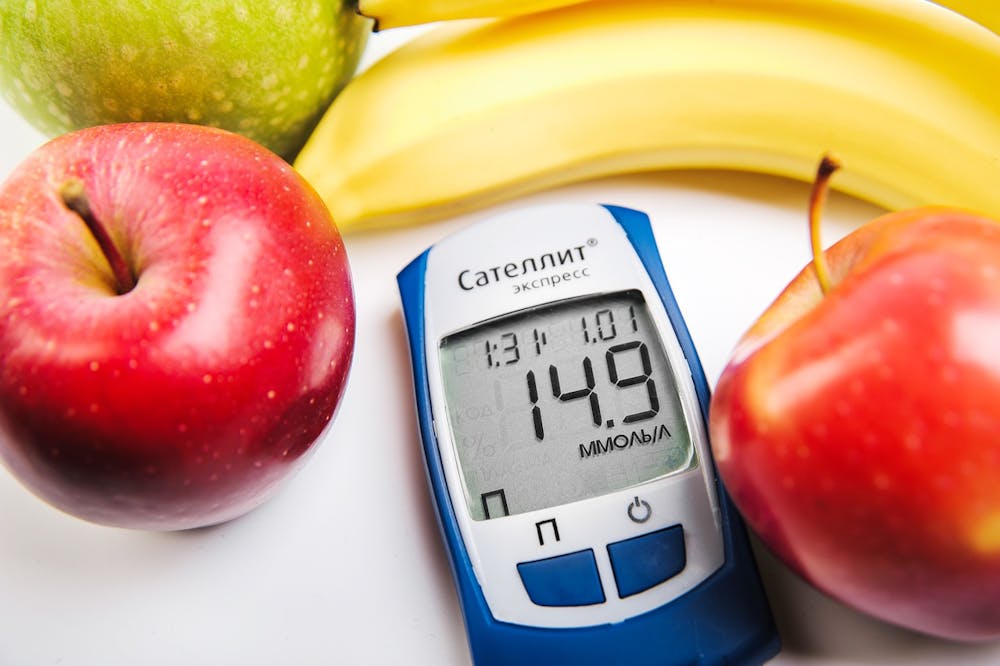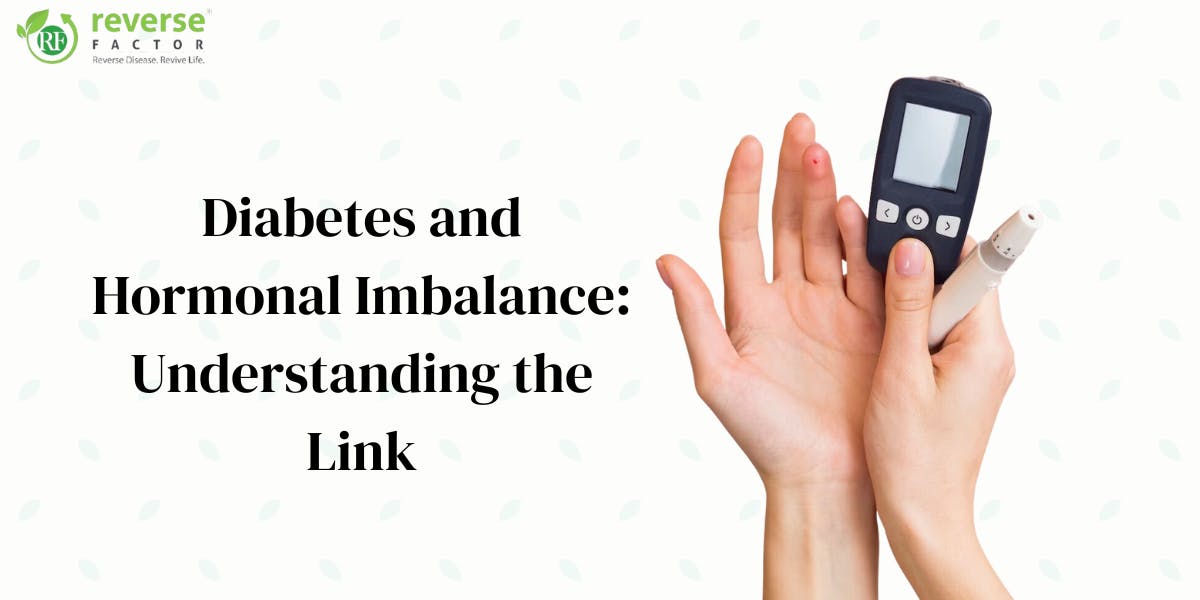Your hormones play a crucial role in ensuring that each organ in your body functions properly. These hormones are produced by the endocrine system in your body. Hormones regulate a wide range of body functions, including your mood, sleep patterns, and even the capacity to become pregnant. With growing age, your hormones undergo significant changes. Pregnancy and menopause are just a few examples of hormone imbalance in women. When your hormones are out of balance, the imbalance can harm your health which can result in diseases like diabetes. Many individuals suffering from hormonal dysfunction join Hormonal Imbalance Treatment In India.

Diabetes and hormonal imbalances are two common health conditions that can impact your life in many ways. You can experience many symptoms as soon as you get affected by diabetes. If there is a sudden increase in your blood sugar level that you are unable to control, you may need to join a diabetes reversal program in India. This program can help you manage your blood sugar level and prevent the risk of further complications.
Read this blog to understand the connection between diabetes and hormonal imbalance.
Link Between Diabetes and Hormonal Imbalance
The link between diabetes and hormonal imbalance is complex. As hormones play a main role in controlling blood sugar levels. Hormones including insulin, glucagon, cortisol, and growth hormone control our blood sugar levels. This delicate balance can be disturbed by endocrine imbalance, which can result in the development of diabetes. However, there is a two-way relationship between these two conditions. Diabetes can also cause hormone problems, leading to further complications. By being aware of this connection, we can take charge of our health and prevent hormone imbalances as well as diabetes. A diabetes reversal diet plan is an effective way to manage your blood sugar levels. It contains all the necessary nutrients which can control your diabetes and improve your overall well-being.
Must Read: Promote Your Health With An Indian Diet Chart for Diabetic Patient
Causes Of Hormonal Imbalance
There are several causes of hormonal imbalances in our body which are as follows-

Age
PCOS, irregular periods, and fertility issues are a few symptoms of hormonal imbalance in women that happens in women.
Medical conditions
Health conditions such as PCOS, thyroid disorders, and diabetes, can cause hormonal imbalances in our bodies.
Medications
Certain drugs, such as hormonal birth control, can change hormone levels and result in imbalances.
Prolonged Stress
It can also be caused by persistent stress that can disrupt the balance of the cortisol hormone. If your life is also affected by a high level of stress, you should join Mind-Body Medicine program to relax your mind, body, and soul.
Poor Diet
Hormonal imbalances can also result from a poor diet that is high in sugar, processed carbs, and harmful fats.
Lack of Sleep
Insufficient sleep can also affect hormone levels. It affects especially those that control hunger and metabolism.
Read More: 12 Natural Ways To Reduce Anxiety
Major Signs Of Hormonal Imbalance
These are some most obvious symptoms of hormone fluctuations:
- Irregular periods or changes in the menstrual cycle
- Hot flashes and night sweats
- Mood swings, anxiety, and depression
- Fatigue and difficulty sleeping
- Acne, oily skin, and hair loss
- Weight gain or difficulty losing weight
- Low libido or sexual dysfunction
- Insomnia or trouble sleeping
- Bloating, constipation, and diarrhea
- Increased thirst and urination
How Are Type 1 Diabetes And Hormone Imbalance Related?
An autoimmune attack on the pancreatic cells that make insulin hormone results in type 1 diabetes. The hormone insulin controls your body's blood sugar levels. So, when insulin levels are low, blood sugar levels get high, which can cause many symptoms and complications. Type 1 diabetes is considered a hormonal condition because insulin is a hormone. Moreover, people with type 1 diabetes may experience high blood sugar levels. It can affect their hormones and result in symptoms like mood swings, fatigue, and trouble sleeping.
What Hormones Affect Blood Sugar Levels?
Insulin
Insulin reduces blood sugar levels by enabling glucose to enter your body's cells.
Glucagon
Glucagon causes the liver to release stored glucose, which raises blood sugar levels.
Cortisol
It increases your blood sugar levels by releasing glucose from the liver and reducing insulin sensitivity.
Epinephrine
This hormone raises blood sugar levels by encouraging the liver to release glucose and reducing insulin production.
Growth Hormone
Growth hormone causes the liver to release more glucose. It also decreases insulin sensitivity, which raises blood sugar levels.
How To Manage Diabetes And Hormonal Imbalance?
Follow the instructions given below to prevent the risk of hormonal disorders and diabetes –
- Consuming whole grains, vegetables, and fruits can help you to balance hormones and regulate your blood sugar levels.
- Regular exercise can also help you to increase insulin sensitivity. It controls blood sugar and supports hormonal balance in your body.
- Reducing stress through practices like yoga, meditation, and deep breathing can help you a lot to promote hormonal balance.
- Insufficient sleep can cause imbalances in your hormone levels. So, make sure to get adequate for maintaining hormonal balance.
- You should also maintain a healthy weight by following a healthy diet and regular exercise. It can help you to increase insulin sensitivity and control blood sugar levels.
Final Thoughts –
Diabetes and hormonal imbalances are two serious conditions. Both conditions can poorly impact an individual's well-being and lifestyle. While you can opt for a hormonal balance treatment, there are ways to manage and reverse these health conditions naturally. If you or your loved one are going through this health issue, you should focus on maintaining a healthy lifestyle. All you need is the right care and food to live a fulfilling life!
Frequently Asked Questions –
What Are The Foods That Cause Hormonal Imbalance?
People may experience hormonal imbalances as a result of eating processed meals, sugar, and high-fat foods.
Is There Any Connection Between Diabetes And Hair Fall?
Yes, there is a strong link between diabetes and hair loss. High blood sugar levels can harm the nerves and blood arteries that supply the hair follicles, which results in hair loss.
What Is The Most Effective Cure For Hormonal Imbalance?
The best way to cure your hormonal imbalance is to make some lifestyle changes and opt for a healthy plant-based diet.
How To Manage High Blood Glucose Levels?
One can control high blood sugar levels by monitoring blood sugar levels frequently. Also focus on eating a healthy diet, doing exercise, and managing stress.
How Does Diabetes Affect Your Hormones?
Diabetes can affect hormone levels like insulin, glucagon, cortisol, and growth hormone. It can result in imbalances that can make the situation worse.
What Are The Symptoms Of Hormonal Diabetes?
Hormonal diabetes can cause increased thirst and urination, fatigue, hazy vision, and slow wound healing.
How Does Diabetes Affect Female Hormones?
Diabetes can affect female hormones by altering insulin levels. It can cause imbalances in sex hormones like estrogen, progesterone, and testosterone. PCOS and infertility are some major causes of hormonal imbalances in women.
What Hormonal Disorders Cause Diabetes?
Cushing's syndrome and hyperthyroidism are some hormonal disorders that can lead to diabetes.
Does Diabetes Affect Hormones?
The hormones insulin, glucagon, cortisol, and growth hormone can all be affected by diabetes. This can cause hormonal imbalances that can make the condition worse.
Can Hormone Imbalance Affect Blood Sugar?
Hormonal imbalance can alter blood sugar levels by disrupting the balance of insulin and other hormones. This can result in insulin resistance, elevated blood sugar levels, and a higher chance of developing diabetes.




